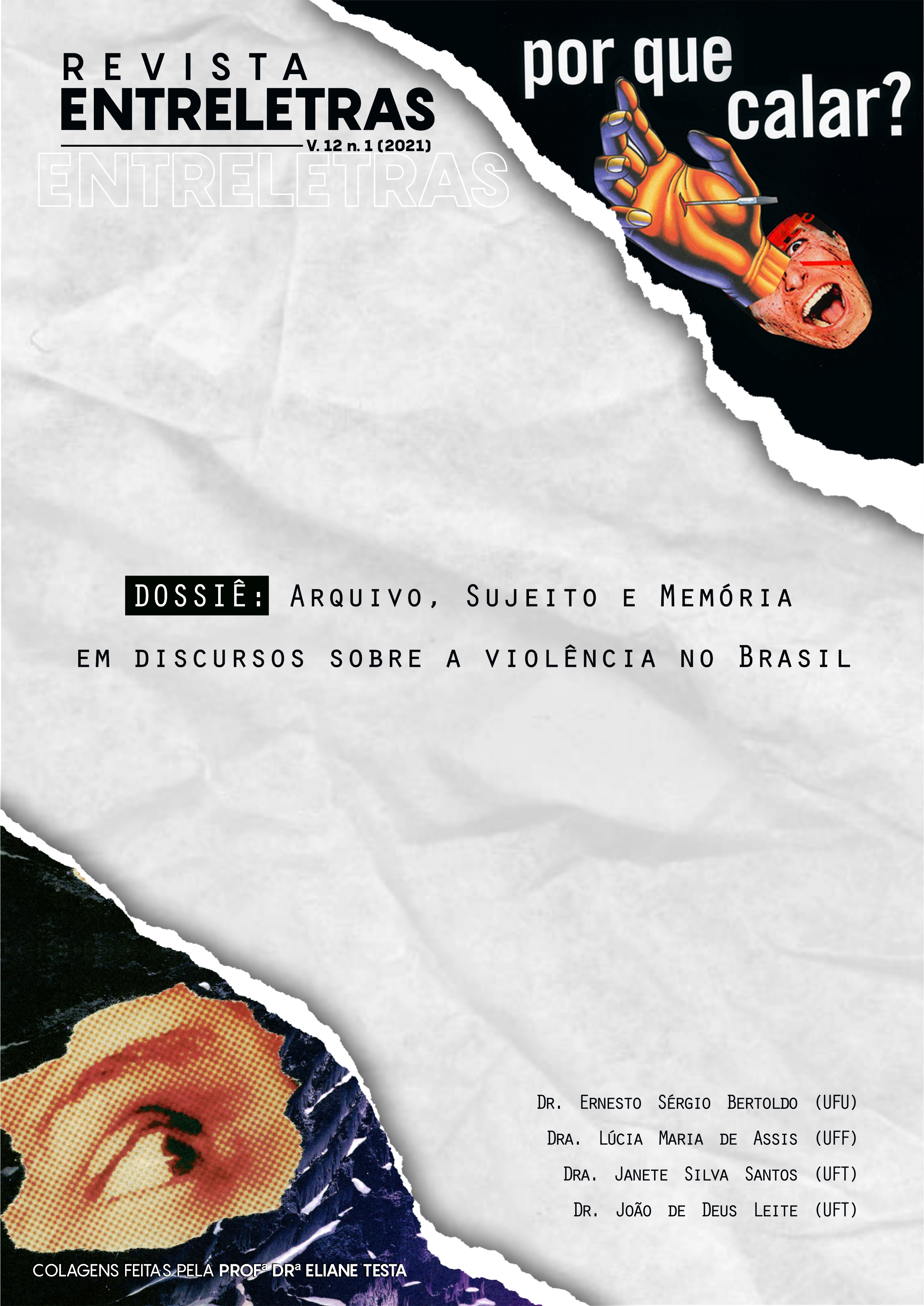MEMÓRIA SOCIAL E ESQUECIMENTO
O MUNICÍPIO, A ESCOLA E OS DIREITOS HUMANOS
DOI:
https://doi.org/10.20873/uft2179-3948.2021v12n1p49-71Keywords:
memória social; direitos humanos; educação.Abstract
This paper aims to describe and understand the absence of contemporary references to the history of human rights violations that occurred in the municipality of Barra Mansa, in Rio de Janeiro, during the Brazilian military dictatorship (1964-1985). For this, we use the analytical perspective of Pollak (1989) about the process of framing memory and describe the history of human rights violations in the city. The research was carried out from the collection and analysis of qualitative data obtained with the application of a questionnaire in three schools in the city, covering students graduating from the third year of high school, students in the last module of Education for Young People and Adults. We randomly invited the respondents to the questionnaire applied to participate in a focus group, when we stimulated the discussion about Human Rights and the violations that occurred in the army building of Barra Mansa. Thus, we could verify that the graduates of the public school system in Barra Mansa/RJ aren’t knowing of the past of human rights violations that occurred in this city. In line with the results obtained, we discuss the right to memory and the need for education based on national curriculum guidelines. These ensure that the student understands the importance of the plural character of social memory and the relevance of Human Rights in the formation of citizens.
Downloads
References
ARENDT, Hannah. Entre o passado e o futuro. São Paulo: Editora Perspectiva, 1988.
BEDÊ, E. D. A. T. Relatório Final. Comissão Municipal da Verdade Dom Waldyr Calheiros. Volta Redonda, p. 589. 2015.
BOURDIEU, Pierre; PASSERON, Jean-Claude. A Reprodução, elementos para uma teoria do sistema de ensino. 3º Edição. Rio de Janeiro: Editora Francisco Alves, 1992.
CARVALHO, J. M. Cidadania no Brasil. O longo Caminho. 3ª ed. Rio de Janeiro: Civilização Brasileira, 2002.
CENTRO DE MEMÓRIA DO SUL FLUMINENSE. Síntese do Processo Criminal a Que Responde o Ten Cel Gladstone Pernasseti Teixeira. Disponível em: < http://cemesf.vr.uff.br/textos/sintese-processo-criminal-que-responde-o-ten-cel-gladstone-pernasseti-teixeira/ >. Acesso em: 12/01/2020
COUTO, A. L. F. Do Império à República: a vida política no município de Barra Mansa. Tese (Doutorado em História, Política e Bens Culturais) - FGV - Fundação Getúlio Vargas, Rio de Janeiro, 2016.
DECLARAÇÃO UNIVERSAL DOS DIREITOS HUMANOS. Assembleia Geral das Nações Unidas em Paris. 10 dez. 1948. Disponível em: <https://nacoesunidas.org/wp-content/uploads/2018/10/DUDH.pdf> . Acesso em: 15 nov. 2019.
HALBWACHS, M. A Memória Coletiva. Paris: Editora Albin Michel, 1990.
MARTINS, R. B. A Transferência Da Corte Portuguesa Para O Brasil: Impactos Sobre Minas Gerais in , Anais do XIII Seminário sobre a Economia Mineira [Proceedings of the 13th Seminar on the Economy of Minas Gerais], Cedeplar, Universidade Federal de Minas Gerais, 2008.
MINISTÉRIO DA EDUCAÇÃO. Atualiza as Diretrizes Curriculares Nacionais para o Ensino Médio. Resolução nº. 3, de 21 de novembro de 2018. Diário Oficial da União, Brasília, 22 nov. 2018, Seção 1, p. 21
POLLAK, M. Memória, Esquecimento, Silêncio. In: Estudos Históricos. Rio de Janeiro, v. 2, n. 3, p. 3-15, 1989.
SECCHI, L. Políticas Públicas: conceitos, esquemas de análise, casos práticos. 2° Ed. São Paulo: Cengage Learning, 2014.
SERBIN, K. P. Diálogos na Sombra: Bispos e Militares, Tortura e Justiça Social na Ditadura. Tradução de Carlos Eduardo Lins Silva. São Paulo: Companhia das Letras, 2001.
TELES, E. Políticas do silêncio: a memória no Brasil pós-ditadura. Disponível em: http://www.academia.edu/640382/Pol%C3%ADticas_do_sil%C3%AAncio_a_mem%C3%B3 ria_no_Brasil_p%C3%B3s-ditadura, 2009.
Downloads
Published
How to Cite
Issue
Section
License
Os autores mantêm os direitos autorais e concedem à revista o direito de primeira publicação, com o trabalho simultaneamente licenciado sob a Creative Commons 4.0 que permite o compartilhamento do trabalho com reconhecimento da autoria do trabalho e publicação inicial nesta revista.
Os autores têm autorização para assumir contratos adicionais separadamente, para distribuição não-exclusiva da versão do trabalho publicada nesta revista (ex.: publicar em repositório institucional ou como capítulo de livro), com reconhecimento de autoria e publicação inicial nesta revista.










